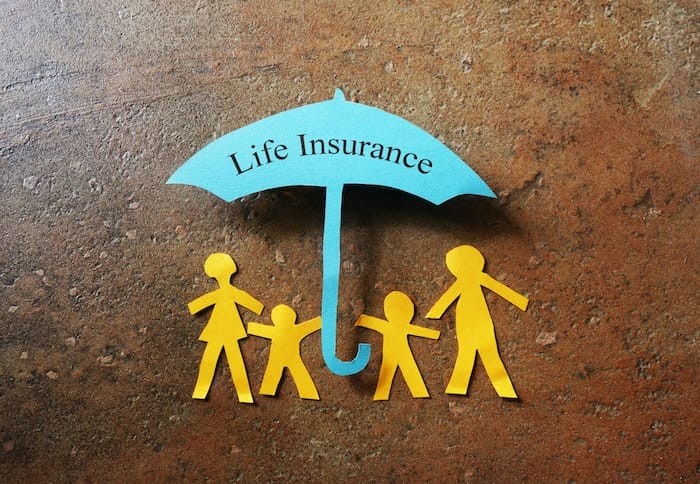Life’s complexity makes it almost impossible to predict. The many uncertainties of life should make you prepared for the worst. You should prepare for the end of your life and make sure you don’t leave your loved ones suffering financially. Thus, it should be in your best interest to obtain and maintain a life insurance plan.
Choosing life insurance can be a challenging endeavor. After all, you need to assure yourself that your hard-earned cash is going to cover for several expenses of the people you hold near-and-dear to your heart after death.
Qualifying for a Life Insurance Plan
Before learning about the qualities of a good life insurance plan, such as Bestow life insurance, you should know that not everyone can avail of this coverage.
The best life insurance companies may also be the strictest when determining if your application passes their standards or not. Keep in mind insurance firms will check several factors like your medical history, credit rating, driving record, and current hobbies.
Your life insurance application may have fewer chances of passing a life insurance company’s standards if:
- Your family has a history of diseases passed through genetics
- You’re financially incapable of paying the premiums
- You’re a thrill-seeker
- You smoke
It’s crucial to maintain a healthy lifestyle to obtain high chances of getting your application accepted.
Aside from thinking about the application requirements, you should also know which life insurance plan to get. Remember, different insurance firms offer varying features and prices for their products and services.
Continue reading to help you discern the qualities of proper life insurance coverage to help you gain excellent value from your hard-earned money.
The Characteristics of Good Life Insurance Plans
Life insurance helps provide financial benefits to your dependents when you, as the policyholder, will pass away. Your registered beneficiaries will obtain the amount of money you leave behind. You can register your family, closest friends, or other individuals as your beneficiaries, and these individuals can use the extra cash to:
- Pay for education
- Buy groceries
- Pay debts
- Give to charitable organizations
- Pay for taxes
But, your dependents can make full use of the policy if you obtain a life insurance plan with excellent coverage. For some families, they may need burial insurance policies on each individual to address burial and final expenses.
Here are the qualities you should be looking for when shopping for life insurance policies.

The Length of the Term
Many insurance companies separate their life insurance plans into two major categories: term and whole life.
Term life insurance policies provide coverage in a predetermined period. If the policyholder dies within the specified term, then the beneficiaries can claim the amount listed in the policy. But, you, as the policyholder, passes away after the term defined in the contract, then your dependents might not gain a cent from the plan.
You can take advantage of term life plans in different periods. The term may last anywhere from one to 20 years or even longer. But, you need to renew the policy for it to remain in effect.
Conversely, whole or permanent life insurance grants you coverage for your entire life. Thus, you may pass away five or 40 years from now, and your dependents can still claim the money in the plan.
Both life insurance plans can provide financial support for your beneficiaries, but you need to know your preferred term. Do you want temporary insurance protection or permanent coverage? The appropriate term should coincide with specific factors like your age, hobbies, finances, and current health condition.
A trustworthy insurance agent can help you decide which life insurance term to obtain. But, your ultimate choice should be an insurance plan that will give you peace of mind and excellent value for your money.
Premium Costs
Insurance companies require you to pay premiums to maintain the coverage of your policy. Failure to pay for the premiums might lead to a cancellation of your plan. But, some insurance firms may only halt the coverage temporarily if you don’t pay your premiums.
Nonetheless, you need to pay the fees to keep the coverage of life insurance policy active. You don’t want your plan to stop when a life-threatening situation occurs.
Thus, choose a life insurance plan that goes well with your current financial status. The price of the premium shouldn’t be too high that it endangers your monthly spending allowance. Consequently, the costs shouldn’t be too low that you’ll limit the benefits of your policy.
Consult a reliable life insurance firm to help you decide which payment plan fits your financial status. Moreover, you can choose between level or stepped premiums for your chosen policy.
Level premiums don’t change as you age. But, these costs are more expensive at the beginning as compared to stepped premiums. The advantage of level premiums is that you won’t have to think about the expenses after you buy your policy. However, the cost of this type of premium might still increase because of inflation or price adjustments.
Conversely, stepped premiums start at a low cost. However, the fees get more expensive as you get older. Stepped premiums might be an ideal choice if you opt for a term life insurance policy since you can stop paying the costs once the period for the coverage is over.
The Financial Health of Your Insurer
One of the dangers of paying premiums to an insurance company is when the firm decides to file for bankruptcy. Take note that an insurance plan is a contract between you and your insurer where the latter offers you financial protection. Your life insurance plan can be a long-term commitment that can last five to 30 years or even a lifetime. Hence, you need to ensure your insurer isn’t at risk of going bankrupt.
A good life insurance plan should maintain coverage while the term is active. If the company goes bankrupt, then filing for insurance claims becomes more challenging than intended. You may even have to fight the firm in legal court to get your premiums back.
Moreover, you may not obtain the same insurance plan with similar benefits from another insurer since you might have already aged significantly since your previous contract. Therefore, you may still purchase a new life insurance plan, but the costs and features can be very different when comparing it with your past commitment.
Start by examining the credit rating of your insurer. Insurance companies have a credit rating that helps define the likelihood of bankruptcy to happen.
Also, check if the insurance firm is a member of the SDIC Policy Owner’s Protection Scheme (PPF). You should get protection from this scheme in the event the insurer becomes bankrupt.
Exclusions
Insurance exclusions are provisions that eliminate coverage when the policyholder is under specific risks. Insurance firms categorize these risks as:
- Catastrophic
- Easy-to-Control
- Not Accidental
- Illegal
- Partially Insurable
- Insurable for a Price
- Maintenance Issues
An ideal life insurance plan will highlight these exclusions to let you know when your beneficiary can’t file claims. Thus, you must read (and re-read) your contract before making the ultimate decision to sign the plan. Take note that there’s no excuse for being ignorant about your plan’s exclusions.
One of the standard life insurance exclusions is self-inflicted harm. If you die from hurting yourself, then your dependents may not get a single cent from the coverage.
More Needs than Wants
Some insurance agents might want to milk more money off of you by including additional features or riders in your coverage. These other benefits give you extra coverage, but they’ll increase the cost of your premiums.
A few examples of life insurance riders include:
- Child Term Rider
The policy provides a death benefit if the child listed as a beneficiary dies before he or she reaches a specified age.
- Long-Term Care Rider
The insurer offers the insured monthly payments if the policyholder needs to stay in a nursing home for the long-term. An insurance company may also provide the same benefit if the policyholder receives long-term home care.
- Waiver of Premium Rider
An insurance company can waive future premiums if the policyholder becomes disabled permanently. The insurer may also provide the same benefit if the contract holder loses their income because of injuries or illnesses.
You should always remember that an insurance plan is a foundation of financial planning. Therefore, life insurance plans are “needs” as opposed to “wants.” Don’t start planning your financial future by thinking about investments. Instead, think of the type of insurance you need before you begin considering your investments.
Remember, riders are akin to “What If” situations. For example, you may not need long-term care rider, especially if you’re a fit and healthy person. Consequently, you don’t need the child term rider if you’re not taking care of children.
Always prioritize your life insurance “needs” over your “wants.” If you add more riders to your policy, then you increase the cost of the coverage.
Conclusion
Consider your options before choosing a life insurance plan. You should think about the term and costs of the coverage before signing the contract. Moreover, don’t forget to check the financial stability of your insurer to make sure you can secure the benefits of your plan stays when you pass away. If you’re still feeling lost, it’s best to consult a reliable life insurance agent today.
The Editorial Team at Healthcare Business Today is made up of skilled healthcare writers and experts, led by our managing editor, Daniel Casciato, who has over 25 years of experience in healthcare writing. Since 1998, we have produced compelling and informative content for numerous publications, establishing ourselves as a trusted resource for health and wellness information. We offer readers access to fresh health, medicine, science, and technology developments and the latest in patient news, emphasizing how these developments affect our lives.








